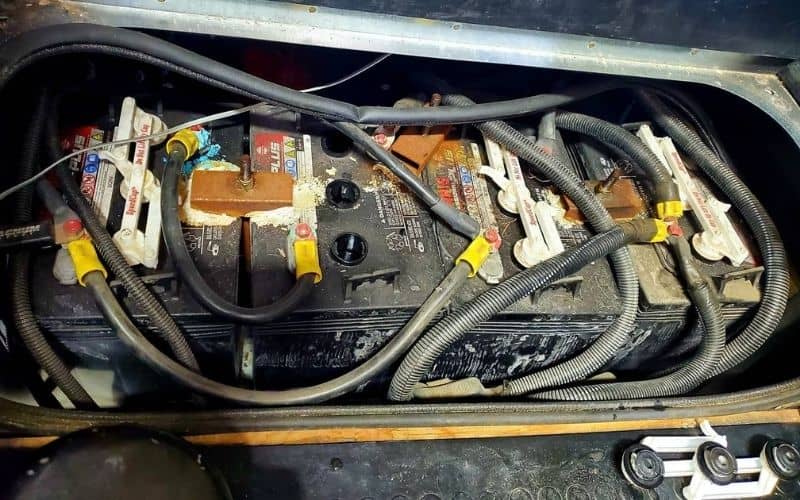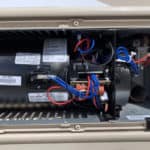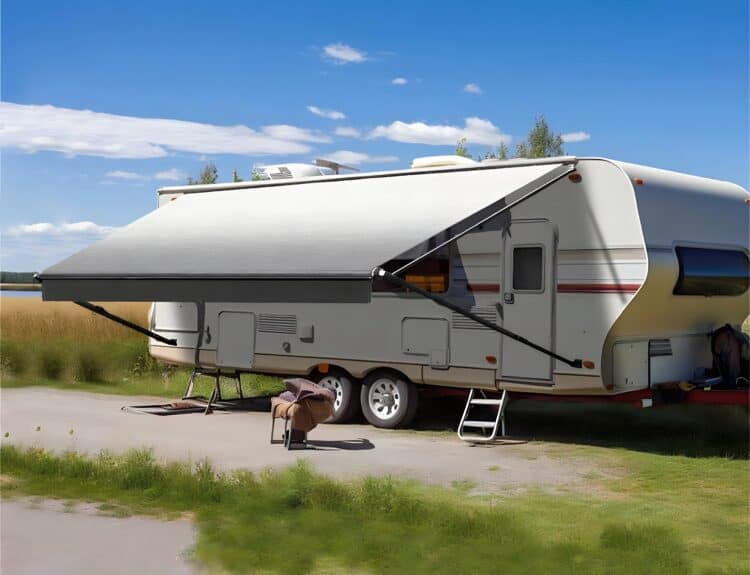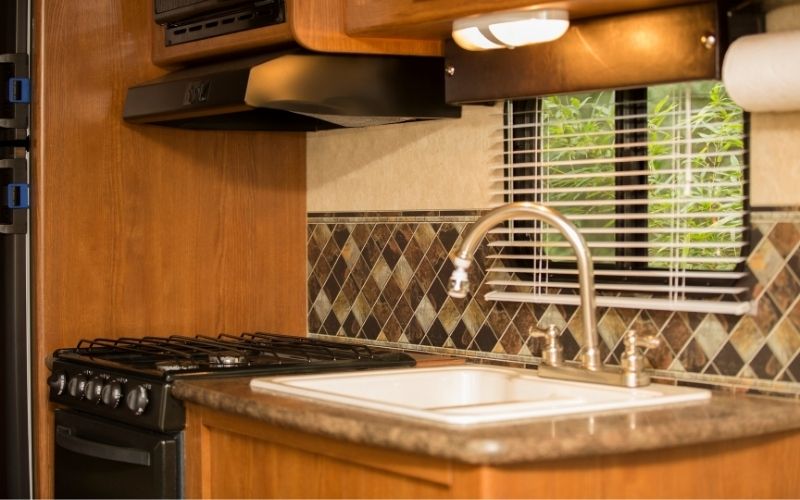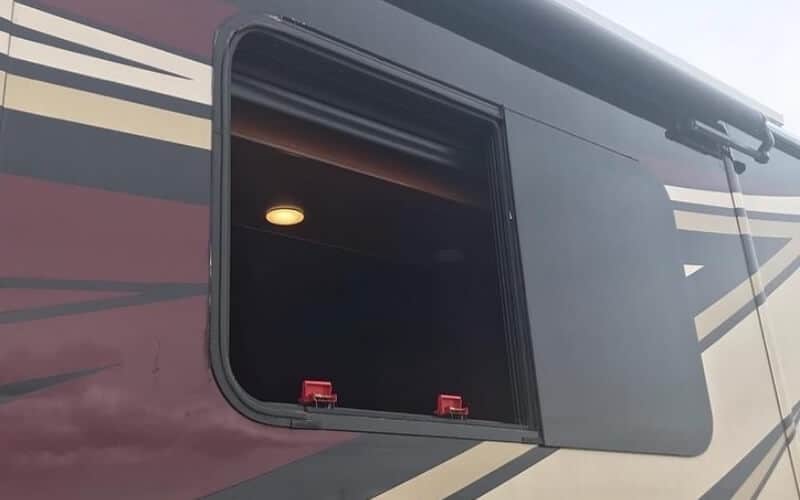The house batteries are the beating heart of any RV’s electrical system. When your RV’s battery dies, they take your vacation’s good times down with them.
You suddenly find yourself robbed of the ability to watch TV, turn on lights, and struggling to keep the RV’s refrigerator cold.
If this is a recurring annoyance, you might be desperately wondering why do my RV batteries keep dying?
The first thing to consider is that you might be simply draining more power than your RVs house batteries can hold. Frequently using the microwave, making coffee, charging all your devices, and running the RV’s rooftop air conditioner can all combine to rapidly drain your RV house batteries of their 12 Volt supply.
Though this is just one of many reasons why your RVs batteries keep dying.
To find the gremlin that’s causing problems with your batteries, we will need to take a closer look at some of the lesser-known details of an RV’s electrical system.
A Problem With Lead-Acid Batteries
While lithium-ion batteries are starting to grow in popularity, most RVs still use large lead-acid deep cycle 12 Volt batteries in their house supply.
As the name implies these batteries use chemical reactions between acid plate components and powerful acid to hold and distribute a charge.
Lead-acid batteries by their nature have a limited lifespan. Even when properly maintained they will still gradually deplete the lead in the plates to the point where they can no longer hold 12 Volts.
At the same time, It’s also possible for the fluid levels to decant which makes for less contact between the acid solution and lead plate components.
Why Your Lead Acid RV Batteries Dies So Fast?
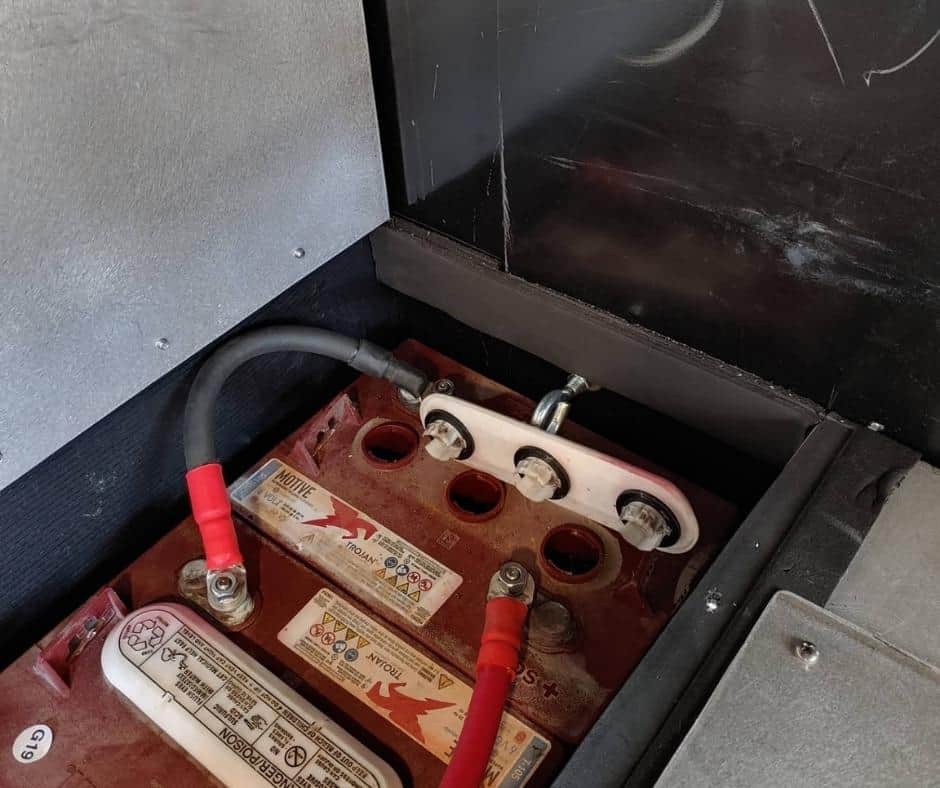
While time can certainly kill any lead-acid battery, there are other aspects of routine maintenance that can also kill a lead-acid battery before it’s time.
Overcharging
By and large overcharging is one of the most common causes of premature battery death.
When a 12 Volt lead-acid battery is left on a charger for two long after reaching its maximum charge it can overheat.
This damages the components inside, can lead to fluidic acid loss, and even cause acid to be expelled from the battery case.
When charging a 12 Volt lead-acid deep cycle RV battery, you should take it after the charger immediately after reaching 100% or use a “Smart Charger” with battery monitoring technology.
Depleting Below 50% Of Maximum Charge
This is the second most likely to give a lead-acid RV battery a premature death.
Anytime a lead-acid battery is drained below 50% of maximum charge, there is the potential to damage the interior components.
Especially if it is being drained deeply below half. Should this happen frequently, it can make it increasingly hard for your RV’s house batteries to hold a maximum charge.
Not Storing RV Batteries During A Harsh Winter
If you live in the north, freezing temperatures in the winter can also kill a 12 Volt lead-acid battery before it’s time.
To prevent this from happening, you should store your RVs batteries indoors or make a point to monitor and charge them throughout the winter season.
When Does A Lithium-Ion RV Battery Discharges Quickly?
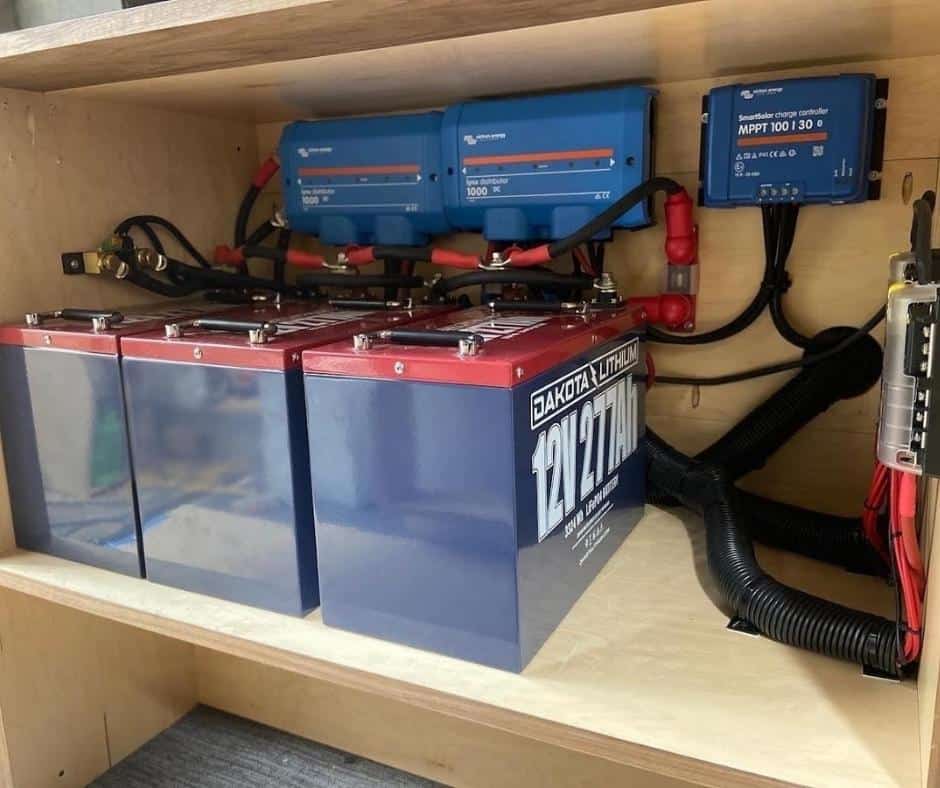
Lithium-ion batteries have long been used in power tools, lights and even portable stereo equipment.
Though recent advances in battery technology have made them increasingly viable for use as RV house batteries.
They have a lot of advantages over lead-acid batteries in that they are not damaged by being drained below 50%.
Though they do tend to cost more, and they have some maintenance requirements that can shorten their lifespan if ignored.
Lithium-Ion RV Battery Discharge More Quickly In Cold Weather
Freezing temperatures can kill a lithium-ion battery dead in its tracks. Even when installed and being used.
They need to be stored indoors during the winter or kept above freezing when camping in overly cold conditions.
Damage & Cracks
The inside of a lithium-ion battery has many small cells. When one is damaged, or a case is cracked and moisture manages to invade the space, it can lead to thermal runaway.
This severe damage can kill a lithium-ion RV battery quickly and can even pose a serious fire risk.
So, be careful loading and unloading the batteries to prevent them from being bumped, cracked, or otherwise damaged. You should also make sure to store them in a water-proof enclosure or battery case.
Parasitic Loads That Can Discharge Your RV Battery Over Time
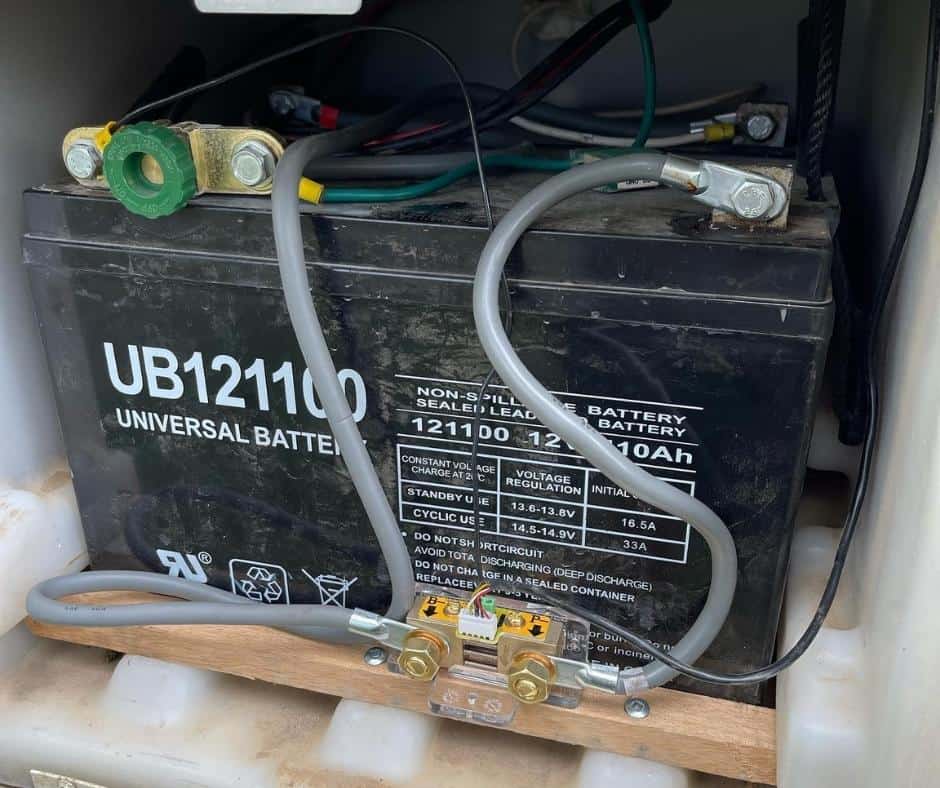
As we mentioned earlier, having too many lights and appliances drawing power at one time can rapidly deplete an RV house battery’s charge.
Though less obvious things can also contribute to rapid discharge or combine to make your RV batteries run flat.
Also known as “Parasitic Load” this can be a collection of things including:
Simple Ways To Extend The Life Of RV Batteries
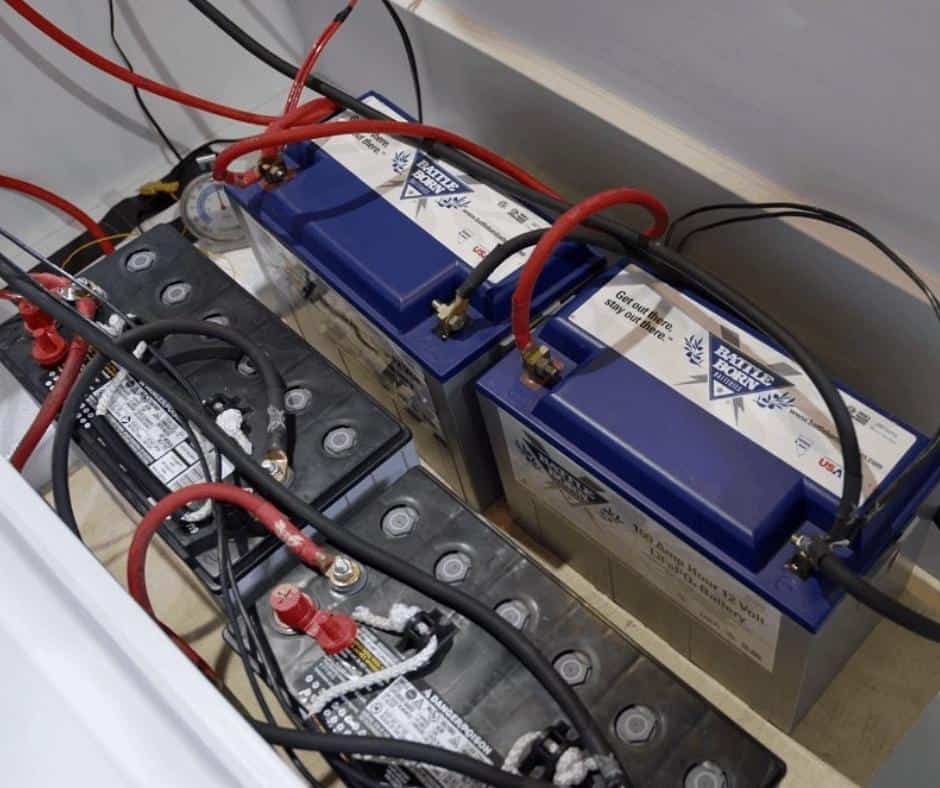
There are a few things you can do to keep your RV batteries from dying all the time.
Make Sure Your To Charge Your Battery
Always remove an RV battery from the charger soon after it reaches 100% of charge or use a special smart charger with battery monitoring technology.
Don’t Drain Below 50%
Lead-acid batteries start to lose performance and can be damaged when allowed to drain below 50%.
Though this isn’t really an issue with lithium-ion RV batteries until they dip below 10% or so.
Proper Storage
All batteries need to be stored in a location where they won’t freeze. Though lithium-ion RV batteries are especially susceptible to damage from below-freezing temperatures.
Clean Terminals
Lead-acid RV batteries are increasingly prone to corrosion on the terminals.
Left unchecked this can start to make it hard for the batteries to recharge, hold a charge, and deliver a charge with a full 12 Volts of power.
Cleaning your battery terminals before each trip as well as when you take your RV out in the spring will help with energy efficiency.
Charge Based On Usage
Keep tabs on your RV’s house batteries when you are parked up at camp.
If you have lead-acid deep cycle 12 Volt batteries, you should charge them with a battery charger or a generator any time they near 50% of charge.
This will ensure they can deliver the proper electrical load as well as preventing damage to the internal components.
Use Solar Or Similar Green Energy To Maintain Batteries
Solar cell technology has advanced by leaps and bounds in recent years.
To the point that the solar panels available for sale at the retail level are capable of helping to charge RV batteries.
Connecting a small array of solar panels can help keep your RV’s house batteries fully charged while you are on a trip, or top them up when not in use.
How Long Do RV Batteries Last?
Lead-acid 12 Volt deep cycle RV batteries should last between 5 to 7 years with proper maintenance and proper charging procedures.
Lithium-ion RV batteries can have a longer lifespan of up to 15 to 20 years with proper maintenance.
How Can I Tell How Much Charge My RV Batteries Have?
Having a battery monitor device installed in your RV’s electrical system will let you see how much charge your RV batteries have at a glance.
Some of the best models can even be set up with alerts to let you know when your RV batteries are reaching 50%.
They are relatively inexpensive and will go a long way toward helping you understand when your batteries need to be recharged, as well as helping maximize their life by not damaging them via under or overcharging.
Not Another Dead RV Battery
While things like overuse from having too many electrical appliances running at one time is an obvious culprit, there are other things that can still cause your RV’s batteries to keep dying.
Parasitic load from too many small drain devices running all the time is another common, yet less obvious one.
If your RV batteries are dying and you are convinced it’s not due to usage, then you should turn your attention to the state of the batteries themselves.
Testing with a multimeter or hooking up a battery monitor will give you a better understanding of their current charge level and performance.
If you have a bad habit of overcharging or depleting the RV batteries, it might be time to replace one or two house batteries outright.

